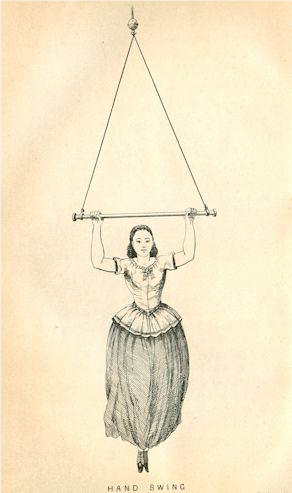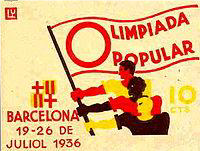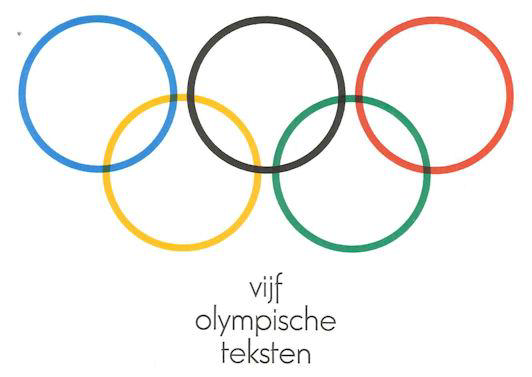The Olympics feature in a number of archival collections at the University of Liverpool, which also houses extensive sports related archives and books. As we are missing the excitement of the Olympics this year, in this post we explore some stories of past Olympic Games from our collections.
Liverpool Athletic Club’s Grand Olympic Festival, 1862
Athens, 1896 is considered the first modern Olympic Games, but thirty-four years earlier, on June 14 1862, Liverpool Athletic Club was hosting a Grand Olympic Festival before a crowd of up to 10, 000 spectators ‘of a highly respectable class’. The 1862 Festival began with the announcement of a gold medallist – Edgar Athelstane Browne, winning the prize for the best essay on Physical Education.
Liverpool’s Special Collections and Archives holds a signed copy of Browne’s prize winning essay along with the Olympic Festival Programme. The essay includes illustrations by his father, Hablot Knight Browne, who is best known for illustrating works by Charles Dickens under the pen-name of Phiz. One illustration shows ‘the hand-swing, or, as it is called now-a-days, the trapeze’. Browne comments that, ‘It has the advantage of being adapted for the use of women. We commend to the ladies of England the plan of rising half-an-hour earlier than is their custom, and devoting the time thus gained to the trapeze and dumb-bells. Women are not meant for such severe exercise as men, but they are the better for some.’

At 3pm the sporting programme began with the 120 yards Flat Race (11½ sec) ‘a splendid spin’, followed by more Flat Races, Steeplechase, the Broadsword, Vaulting (6ft 6½in), Fencing, Boxing, Indian Club Exercises, Sabre versus Bayonet, Bayonet versus Sabre, Gymnastics, Walking Match (four miles completed in thirty-six minutes), High Running Jump (4ft 11in), Pole Leaping (9ft 6in), Throwing the Disc, and Wrestling. At half-past nine the games finished, postponing Throwing the Cricket Ball and Hop, Skip, and Jump to the following Tuesday.
People’s Olympiad, Barcelona, July 1936
The notorious 1936 Berlin Summer Olympics (August 1-16) were boycotted by Spain and the Soviet Union. The newly-elected Spanish Government organised a parallel event in Barcelona (to include chess, folkdancing, music and theatre) in protest against the games being held in Germany under Nazi rule. On 18 July 1936, the games were aborted by the outbreak of the Spanish Civil War, but many who had travelled to compete or watch were stranded in Barcelona.

Ephraim John Burford had motored to Spain with his wife, and his papers (EJB: Burford Spanish Civil War Papers) include his eye-witness account of events in letters, photographs, press-cuttings and English translations of the news which Burford broadcast on Radio Barcelona before he escaped the city on Friday 24 July.
Munich Summer Olympics, 1972
The second German Olympics was held at Munich in 1972. There is a Liverpool connection in the form of a poem: Roger McGough’s tennis poem 40–Love , published as one of five poems for the Olympics in a pamphlet bearing the Olympic symbol of five rings representing the five continents participating in the Games.
